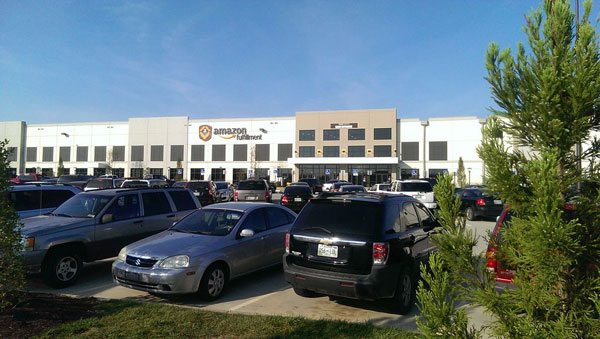
January 3, 2018; Next City
This week, the 35-member Metro Council of Nashville, Tennessee, passed a resolution by voice vote that requires firms seeking economic development incentives to “disclose details like how many county residents they’ll hire, the wages they’ll pay and whether they’ve had any safety violations in the past,” before the Council votes up or down on the request.
The Nashville action comes in the wake of the ongoing scramble of 238 communities that have submitted proposals seeking to become the site of Amazon’s second headquarters. In some cases, it seemed the goal was to see who could throw the most cash at a company that already has a market capitalization that is well over $500 billion and which some have argued will double or even triple in value over the next decade. Yet some communities have taken a different path.
Last October, NPQ covered the case of Buncombe County in North Carolina (county seat is Asheville), where commissioners voted unanimously to “remove $1.5 million from the county’s $5 million economic development incentive pool to finance a small business loan program and expand preschool education.” Also, in October, the mayor of San Antonio, Texas, signed a letter to Amazon explaining that it was the “collective decision of local economic development, government and industry leaders” not to submit a proposal, in part because “blindly giving away the farm isn’t our style.” San Antonio instead emphasized that it would make investments in education, housing, climate resilience, and infrastructure.
Unlike San Antonio, Nashville did submit an offer. In a recorded video, Mayor Megan Barry said, “At its core, Nashville is a business-friendly place. Nashville currently has the lowest property tax rate in [the] history of the city. Nashville offers over a dozen potential development sites across the region that fit many if not all of the criteria that Amazon has identified as important attributes in a future HQ2. As you investigate these sites more closely, I am confident that you will find an ideal home to offer you the operational efficiencies as you grow here with our great city.”
How much did Nashville pledge to Amazon if it selected Nashville to be its second headquarter city? That’s hard to say. Last month, Stephen Elliott of the Nashville Scene wrote:
Sign up for our free newsletters
Subscribe to NPQ's newsletters to have our top stories delivered directly to your inbox.
By signing up, you agree to our privacy policy and terms of use, and to receive messages from NPQ and our partners.
Nashville’s bid has not been released, despite public records requests made by the Scene to both the city and the state. (The bid was overseen by the Nashville Area Chamber of Commerce, a private entity, which also declined to share the proposal with the Scene.) But it’s not just the public who can’t see the bid: Members of the Metro Council, who would have to approve an incentive package for Amazon, tell the Scene they haven’t seen it either.
“I would be very curious to see what we are giving away,” says District 31 Councilmember Fabian Bedne. He adds that he doesn’t want to micromanage the negotiations, but still, he says, “We never learn about these things until it’s too late.”
There had been controversies regarding economic development incentives in Nashville before Amazon. Odessa Kelly, co-chair of the Stand Up Nashville coalition that advocated for the bill, wrote an op-ed in the Tennessean that highlighted some past questionable uses of economic incentives, including a package in which “Ryman Hospitality was awarded incentives with an estimated total value of $15 million [the Nashville Scene says $14 million] to build a luxury water park at the Gaylord Opryland Resort that County residents can’t even access unless they stay at the hotel.” More broadly, the state of Tennessee is well known for its sometimes lavish economic development incentive packages worth billions of dollars.
Still, it would appear that the lack of transparency behind the Amazon package was the final straw that led to the passage of legislation in Nashville. The so-called “Do Better” bill that the Metro Council passed will require companies hoping to receive incentives to make prior estimates on wages and jobs created or retained, as well as disclose past safety violations.
The Chamber of Commerce opposed the bill, but with a second reading vote of 30–5 in December, it was pretty clear what the final result would be. The voice vote taken at the end signaled general acceptance that future deals would be subject to greater Council scrutiny.
As NPQ has noted before, general revenues are relatively finite. Money spent on economic incentives often comes at the expense of public education and/or social services. Nashville might seem an unlikely place for a reaction to economic development incentives to occur. It will be interesting to see if other communities act to follow Nashville’s lead.—Steve Dubb












